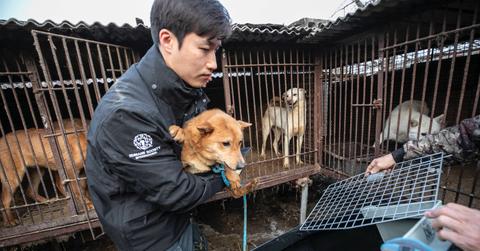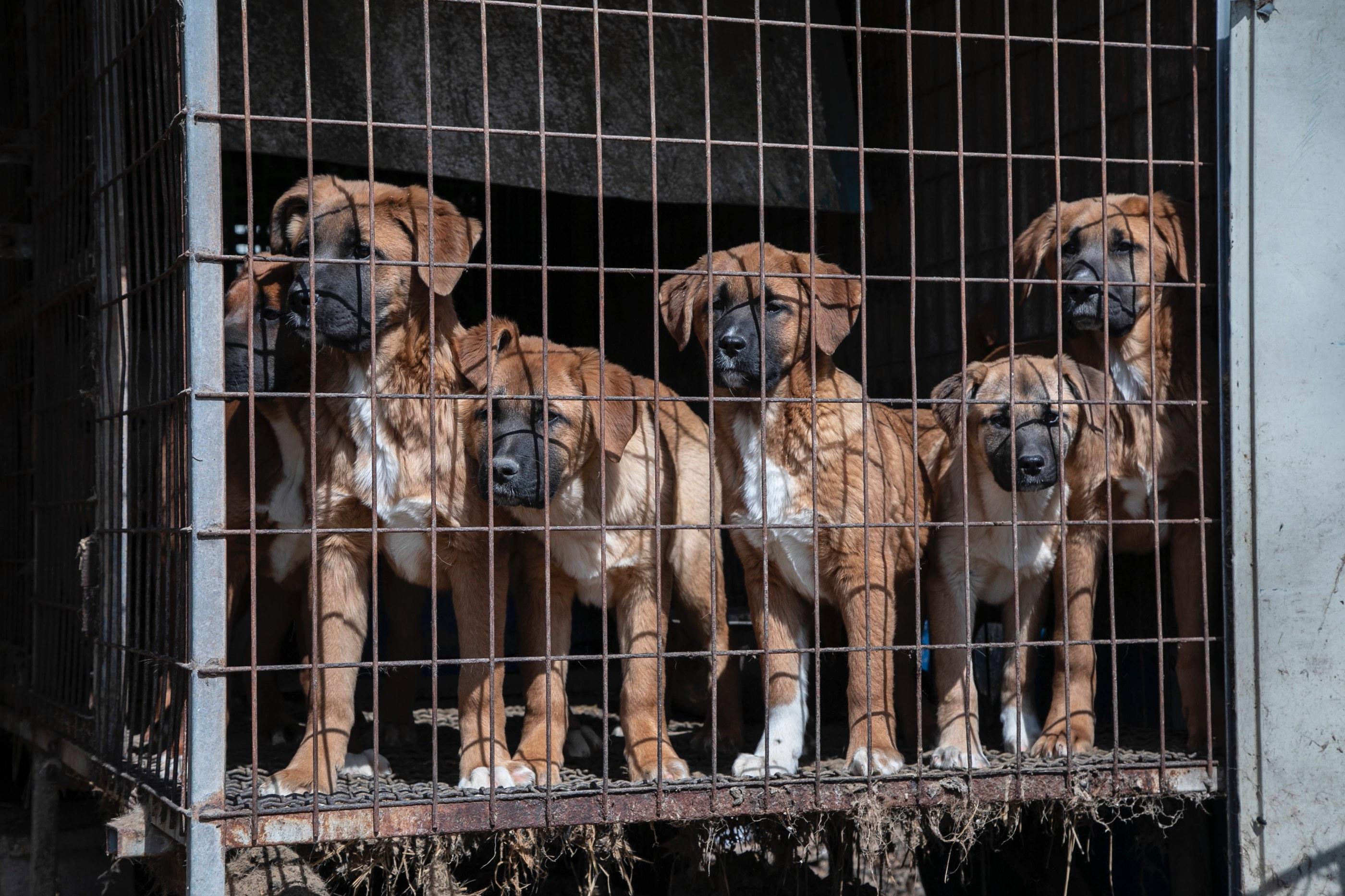South Korea Policymakers Vote to Ban Dog Meat, After Decades of Pressure
Published Jan. 9 2024, 12:47 p.m. ET

Policymakers in South Korea voted on Jan. 9, 2024 to approve a three-year plan that will effectively ban dog meat for human consumption by 2027.
The ban of South Korea's dog meat industry will be enforced through up to three years of prison and financial penalties for violators, according to The Guardian. Financial assistance for those engaged in the industry — such as dog meat farmers, those who slaughter dogs for work, and business owners who sell dog meat — is available to aid in the transition away from those operations, per Humane Society International (HSI).
Green Matters spoke exclusively to Humane Society International/Korea's End Dog Meat campaign manager Sangkyung Lee for insight into this historic news.

South Korea is officially banning the dog meat industry, starting in 2027.
Per The Guardian, the ban on South Korea's dog meat industry passed with 208 total votes (out of 210 voters) in support of the measure. The vote also seems to track with dwindling public support of the industry among South Koreans. The Korea Herald cites a survey in which more than 94 percent of South Korean people surveyed said they hadn't eaten dog meat in the past year.
"Although the number of people who eat dog meat in South Korea is incredibly small, millions of dogs have had to suffer and die in the process, so this ban will end their pain and also diminish even the concept in society's mind of eating our companion animals," Sangkyung Lee tells Green Matters in an exclusive interview.
Nevertheless, South Korea's Ministry of Agriculture, Food and Rural Affairs estimates that more than 1,000 dog meat farms continue to exist in South Korea, and an additional 1,600 restaurants sell dog meat to diners. Those entities will be expected to communicate often with South Korea officials to ensure the timely transition away from the industry, per ABC News, lest they be levied with a fine equivalent to approximately $2,300 USD or jail time.
Per HSI, South Korea now finds itself amongst an ever-increasing list of Asian countries that have rejected the cruelties of the dog meat industry.
"As someone who has been to dog meat farms and seen firsthand the suffering the dogs endure, this ban is a very special moment," Lee told Green Matters. "Dog farms are ugly places where the dogs are confined in small wire cages covered in feces, with no protection against the harsh elements, and fed a disgusting slop made of restaurant waste."
The South Korea dog meat ban was a long time in the making.
Overcoming a centuries-old custom deeply embedded within a country's culture of slaughtering and consuming of dog meat was no small feat. In fact, according to TIME, the decision has been in the works for decades.
Input from animal rights organizations over time, including HSI/Korea and other activists, aided in finally seeing this decision over the decades-long deliberation stage. Animal Welfare Awareness, Research and Education likewise has contributed data that indicate public support of dog meat production and consumption has precipitously declined over the years.
To wit: HSI reports that it has aided 18 South Korean dog farmers since 2015 switch to plant-based operations or other industries altogether.
An 86-year-old proponent of the consumption of dog meat mocked to the BBC that if dog meat is to be banned, South Korea's parliament should likewise ban beef. That view, little do they realize, is the point.
Lee tells us: "I also hope this progress can enlighten people about the lives of other factory farmed animals who live in misery for human consumption, because they don't deserve to suffer just for our meal either."